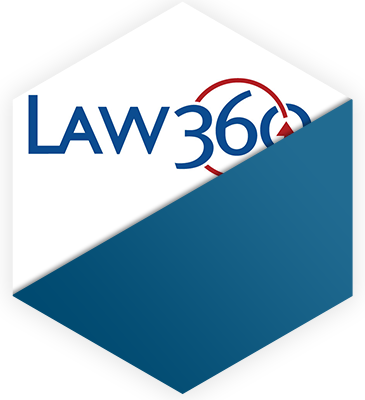
Clients from around the world come to us for our extensive knowledge of environmental law and its far-reaching implications. It is the practice area that helped launch our firm, and the one that continues to play a key role in driving the growth of our business.
Babst Calland’s Environmental Practice Group provides a nationwide clientele with sophisticated and practical representation in all aspects of environmental law. With regulatory attorneys who focus their practices exclusively in this field, our Environmental Practice Group offers a team of seasoned practitioners who can meet the complex challenges that our clients confront.
Our varied and extensive backgrounds in the environmental and health and safety fields, combined with our representation of clients throughout the country, have made Babst Calland one of the nation’s premier law firms in the environmental area.
Focused Environmental Practice Areas
Because of the firm’s broad, nationwide client base, attorneys in the Environmental Practice Group are able to focus their practices on specific environmental areas, such as air pollution, industrial and municipal wastewater management, hazardous and solid waste, complex site remediation, natural resource damages, chemical regulation and occupational safety and health. A Babst Calland client with a hazardous waste issue will have that matter addressed by an attorney who works extensively with hazardous waste programs across the United States. That attorney will be able to apply hazardous waste experience from different industrial sectors, different U.S. EPA regions and different states. As a result, clients do not have to endure a long learning curve or pay for advice based solely upon legal research, but little or no experience.
Broad Range of Experience and Billing Rates
The extent and range of experience levels within the group also distinguish Babst Calland’s environmental practice from other firms. Babst Calland has a number of individual attorneys with more than 40 years of environmental experience. These attorneys have had the benefit of participating in the development of the primary federal and state statutory and regulatory programs, giving them a profound and fundamental understanding of how these environmental programs apply to the firm’s broad spectrum of clients. Indeed, our attorneys participated in the initial implementation of, and challenges to, key provisions of what have become today’s air, water and waste regulatory programs.
Babst Calland also has environmental attorneys with varying levels of environmental experience from one year to more than 40 years. This range of experience and billing rates allows Babst Calland to perform work at the most cost-efficient level. Firms with fewer attorneys do not have the ability to match experience and billing rates with the various tasks involved in solving an environmental problem, resulting in significantly higher fees for their clients.
Strong Technical Backgrounds
Babst Calland’s environmental attorneys also have a wealth of technical backgrounds that help them to solve complex environmental problems and work with and coordinate the efforts of environmental consultants and scientists. For example, the group includes attorneys with undergraduate degrees in electrical engineering, chemical engineering, environmental studies, biophysics, microbiology, biology and information and decision systems, as well as with graduate degrees in health physics and industrial hygiene, environmental engineering, oceanography, limnology, ecology and forensic chemistry.
Plant-Based Experience
Babst Calland has taken this technical background and experience and applied it at the plant facility level to develop practical solutions for clients. Knowledge of the environmental regulations is only part of the process involved in providing effective environmental legal services. It is the ability to translate those requirements in the specific context of a client’s manufacturing process or contaminated property that adds true value to the service provided. Babst Calland attorneys understand the value of knowing our clients’ processes and facilities, and routinely spend time in the field so that practical solutions are not missed because of a lack of understanding of the framework in which an environmental problem arises.
This practical perspective also has enabled Babst Calland to develop effective preventive law programs that have assisted our clients in reducing their environmental exposures. For example, our environmental attorneys have conducted numerous compliance and transactional audits, and developed environmental training programs to cover everything from general environmental awareness to specifically-focused programs on such topics as preparing for a multimedia inspection and determining when an installation permit is required for an air emission source.
Full Range of Environmental Services
Complementing the talents of our environmental attorneys are the strengths of Babst Calland’s other practice groups including Corporate and Commercial, Construction, Employment and Labor, Energy and Natural Resources, Land Use and Public Sector and Litigation. Attorneys from these other practice groups routinely team with the attorneys in the Environmental Practice Group to create a synergy not otherwise found in today’s legal market. Through this team approach, our attorneys take the practice of environmental law beyond its traditional boundaries by not only resolving the problems of today, but by averting or minimizing future environmental conflicts.
Babst Calland environmental attorneys provide seamless, cost-effective solutions for all your environmental concerns. Given the breadth and depth of our attorneys’ knowledge and practical experience with complex environmental issues, Babst Calland’s Environmental Practice Group is uniquely positioned to help our clients face the challenges and opportunities of the 21st century.
Oral Argument Held in D.C. Circuit Litigation on PFOA and PFOS CERCLA Hazardous Substance Designation
Environmental Alert
(by Sloane Wildman and Alex Graf)
After EPA announced that it would retain the CERCLA hazardous substance designations for PFOA and PFOS on September 17, 2025, it filed a motion to lift the abeyance from the ongoing litigation regarding the designations in the D.C. …
Fiscal Code of 2025 Abrogates RGGI, Expedites Permitting Procedures, and Gives the PUC Oversight of PJM Load Forecasts
PIOGA Press
(by Kevin Garber and Alex Graf)
On November 12, 2025, Governor Josh Shapiro signed House Bill 416, a Fiscal Code Bill and a segment of the Pennsylvania budget package for Fiscal Year 2025-26. …
New EPA Webpage Compiles Clean Air Act Resources for Data Center & AI Projects
Firm Alert
(by Gary Steinbauer, Gina Buchman and Christina Puhnaty)
In response to President Trump’s Executive Order 14179, “Removing Barriers to American Leadership in Artificial Intelligence (AI),” EPA announced this week a new EPA webpage dedicated to compiling agency resources related to the Clean Air Act requirements potentially applicable to the development of data centers and AI facilities across the United States. …
Fiscal Code of 2025 Abrogates RGGI, Expedites Permitting Procedures, and Gives the PUC Oversight of PJM Load Forecasts
Environmental Alert
(by Kevin Garber and Alex Graf)
On November 12, 2025, Governor Josh Shapiro signed House Bill 416, a Fiscal Code Bill and a segment of the Pennsylvania budget package for Fiscal Year 2025-26. …
EPA Proposes to Scale Back PFAS Reporting Requirements Under TSCA
Environmental Alert
(by Sloane Wildman and Ethan Johnson)
On November 10, 2025, EPA announced a proposed revision to regulations issued under Toxic Substances Control Act (TSCA) Section 8(a)(7), which would reduce certain per and polyfluoroalkyl substance (PFAS) reporting requirements for manufacturers and importers. …
Babst Calland Ranked in 2026 Best Law Firms®
Babst Calland has been recognized in the 2026 edition of Best Law Firms®, ranked by Best Lawyers®, nationally in 8 practice areas and regionally in 41 practice areas:
- National Tier 2
- Energy Law
- Environmental Law
- Land Use and Zoning Law
- Litigation –
Court Enforces CLCPA Compliance: NY DEC Ordered to Adopt Emission Reduction Regulations
Environmental Alert
(by Polly Hampton, Gina Buchman and Jordan Brown)
On October 24, 2025, the Albany County Supreme Court (Court) issued a decision and order in Citizen Action of New York et al v. …
EPA Will Retain PFOA and PFOS CERCLA Hazardous Substance Designation
PIOGA Press
(by Sloane Wildman and Alex Graf)
On September 17, 2025, EPA announced that it will retain the Comprehensive Environmental Response, Compensation, and Liability Act (CERCLA) hazardous substance designation for PFOA and PFOS, two PFAS compounds. …





